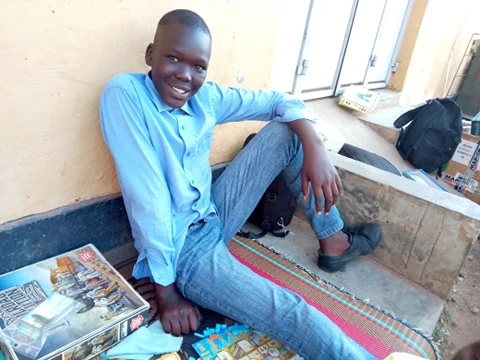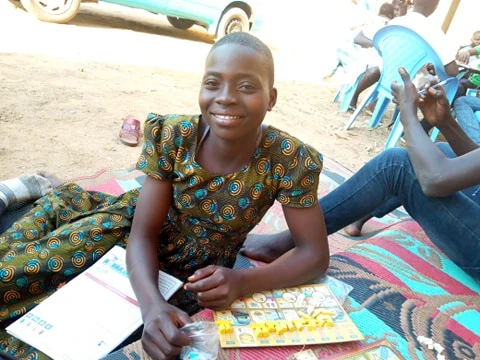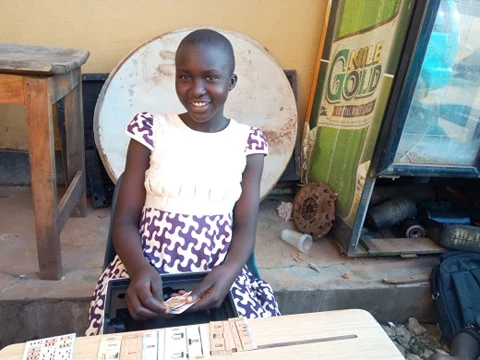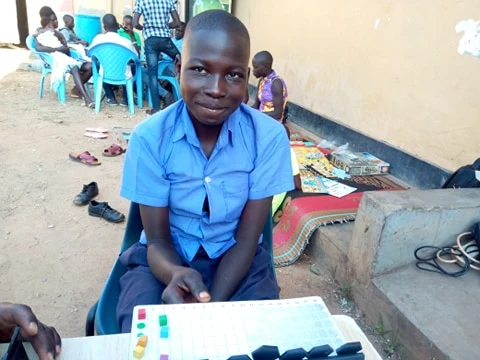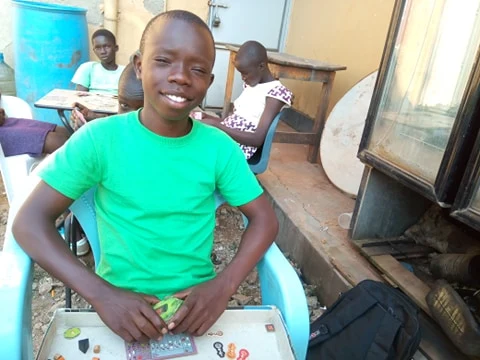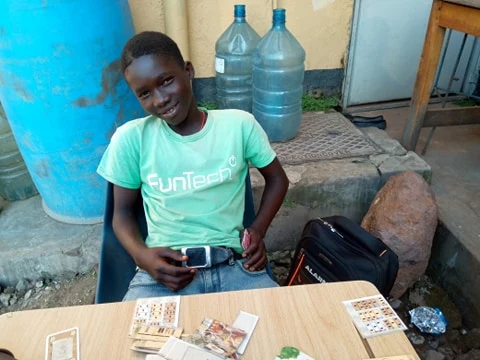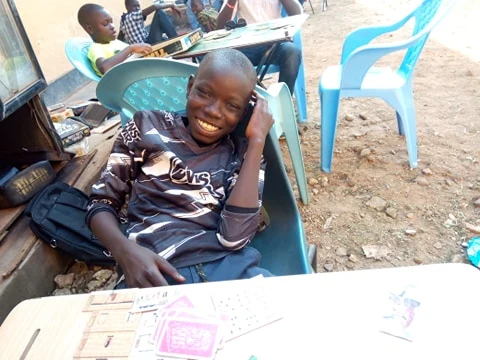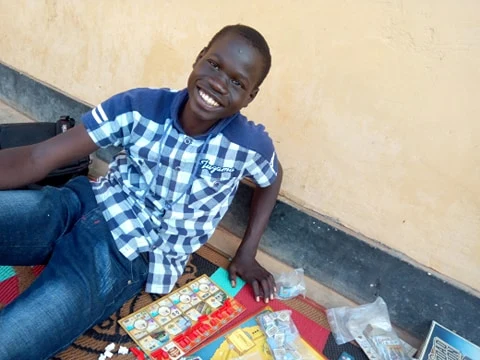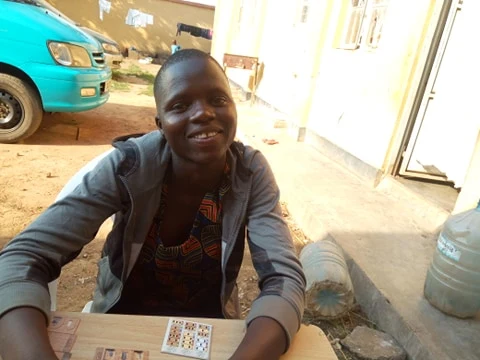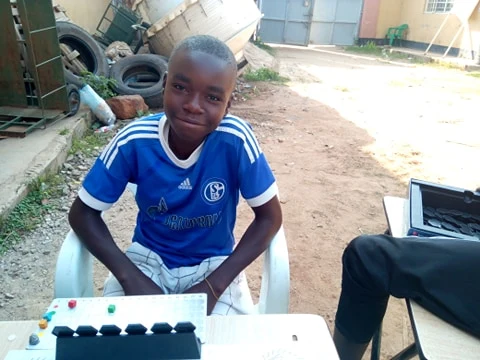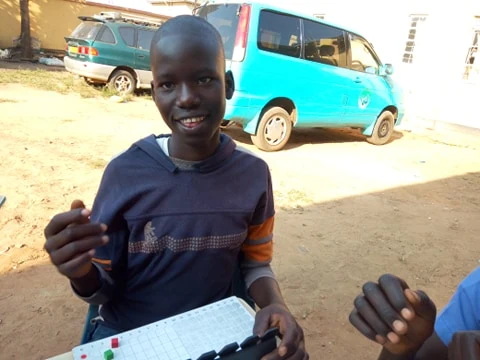In 2007, I visited rural Nigeria with Ashoka Fellow, Emmanuel Nehemiah, a then young man of great influence in village areas, through his incredible work developing co-operatives that made soap, vaseline and many other products. Emmanuel was a brilliant student, who grew up in the village and one of few Ashoka Fellows in Nigeria, whose work focused on village development.
He took me to a tiny village area in a remote part of Kaduna State, where I met by chance a young 14 year old boy, who could neither read nor write, yet he had a vision for his village. “Every day life is the same” he said. “I know things can be different, but I don’t know how to change them. Can you help me?”
I thought about this for a while. In my previous role as CEO for a social enterprise in Birmingham working for the long-term unemployed, I had become a catalyst for change there. With my leadership, our team had established significant influence in Birmingham, enabling local employment strategies to work with the hardest to reach, through our own unique methods. At the same time we had expanded our work to include other new target groups, like drug addicts and ex-offenders. It wasn’t that I had done these things, but that I had been a conduit for others to achieve change, because I had believed it could happen.
I will never forget this young man’s belief in himself and passion for change, though unfortunately our project was never able to be implemented in Nigeria. Nor could we ever have predicted exactly how his vision would be translated into action in Uganda. I cannot give much in the way of detail of what we have achieved over the last nine years in a short blog – we started in Uganda in 2009 – but I can say that it is the disadvantaged youth of Uganda that are the stars. Their enthusiasm and devotion to being changemakers has encouraged me to continue our work and so The Butterfly Project is still here and thriving. My vision for a small project, that could be developed from the grass roots and was cost effective, that however, like the butterfly effect, could create waves of influence, where there had been little change for centuries, is starting to be realised.
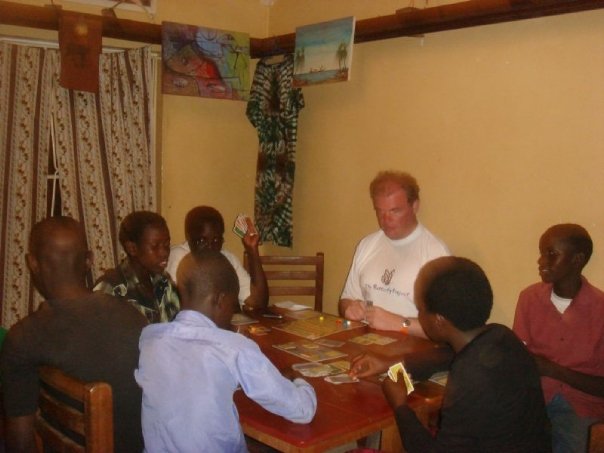
Board games were part of our training programme from the outset. Our early Pioneer members still remember Alhambra with fondness. It was a game that everyone could learn quite quickly, yet was not without some skills and planning. I noticed that the winners of the game immediately developed a confidence (even if it was luck) and so we tried to include a few more games from my meagre collection into the training, games like Citadels were also a huge success and later Power Grid and Ravenloft
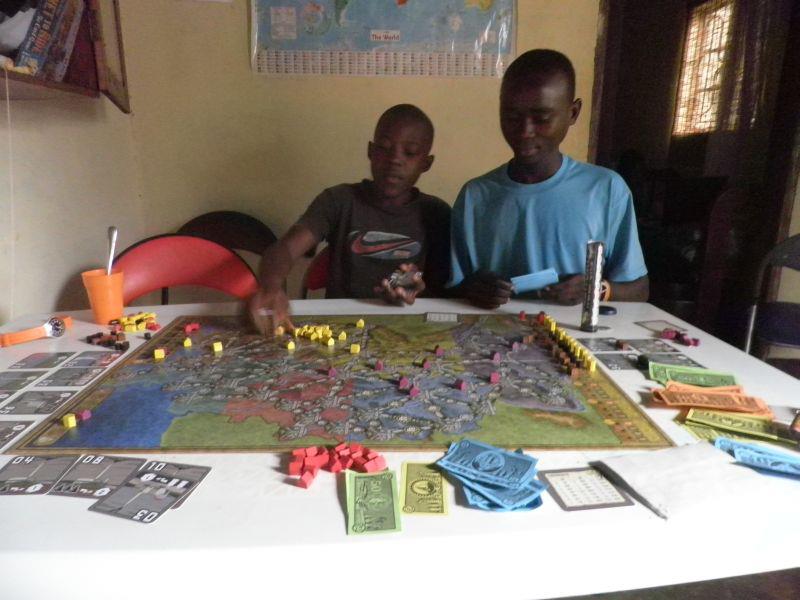
We included the same games with our second cohort in 2010 but it was not until 2014, when we were able to recruit our third cohort, that the boardgames started to become more significant in our programme. Some of these members showed great enthusiasm to learn and play the games, initially focusing on roleplaying games and I’d like to thank Paizo inc. for their generosity in supporting us in the early days. Without their care package of Core Rulebooks and other materials, we would not have been able to inspire them past a few months. These early gamers are now running and DMing their own campaigns.
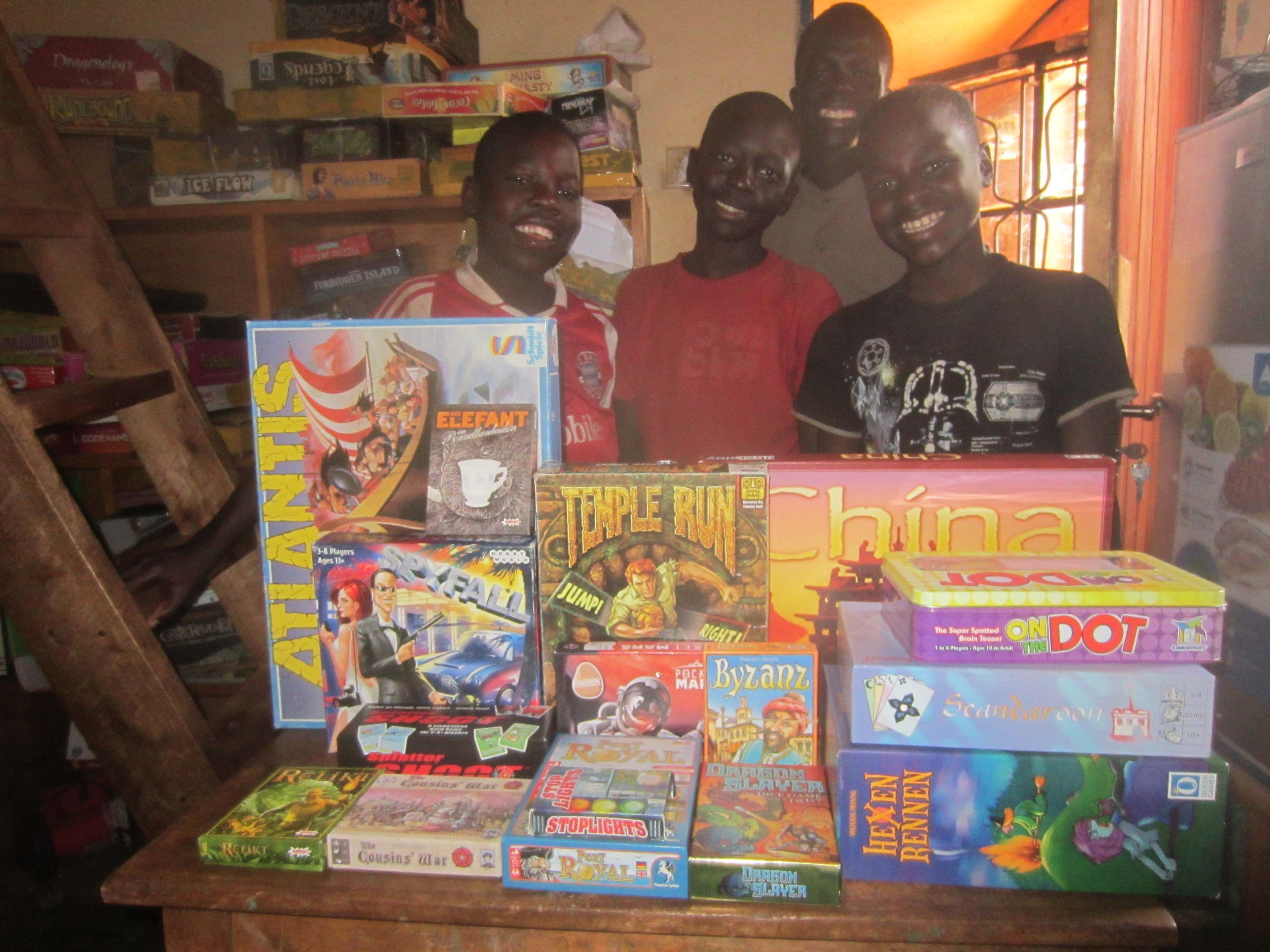
By early 2017, we had received quite a few boardgame donations from well-wishers, enough for us to decide to run the first Uganda Village Boardgame Convention, an idea that came from one of our Butterfly members, who said he wanted to do sometthing interesting in the Easter holidays! We talked to local community leaders and invited about 80 children to the first Uganda Village Boardgame Convention, held at our centre in Koro. By the end of the Convention we had 130 children, some of whom were walking 4-5 miles to attend, so we knew we were onto something and so Gamechangers was launched later in the year
In September 2017, we received an amazing donation of boardgames from the listeners of the Perfect Information Podcast, a hundred or more games of varying complexities, which we then started to teach not just to our trainees, but also to local children coming to our centre in Kampala. It became clear that we needed to expand what we were doing and we moved some of these games to our rural centre, 350km away near Gulu town and this is when we discovered that boardgames are not only welcomed in these village areas by children, but they thrive on them, gaining self confidence and a connection to the outside world, which often they crave. In early 2018, we opened games clubs in Nwoya, Agago, Koro, Atiang and two in Gulu town itself.
Gamechangers has gone from strength to strength, a second large Convention in 2018 with 200 children and youth and then later a Boardgame Bootcamp to teach harder games, which allowed some children to shine. At both events, we were able to give out games for the club members to play at home – mainly the ones they had learnt at the Convention


It is from this Bootcamp event, that we began to realise that boardgames had highlighted some of the most capable children in these village areas and so we decided to include the club members at the centre of our new Butterfly Project recruitment for 2019 and we believe we have found some of the most talented young people from these village areas, who can become the ones to enact the vision originally inspired by the young boy in Nigeria.
Here are the fourteen boys and girls that we are recruiting this year (Left to Right, Top to bottom):
Ronnie is from Layibi in Gulu town and is founder member of the Layibi Club there. Ronnie has been instrumental in running this club with his older brother and has found nothing too challenging so far in his boardgames career! His mum is a produce seller, and father died some 2 yrs ago so it’s basically his mum taking care of the four children. He has 2 brothers and 1 sister and he is the youngest in the family. He helps sell pancakes over the holidays to raise funds for his tuition. He is working towards becoming à lawyer so that he can establish à law firm that will have free services for the poor and oppressed to get proper justice, especially working on childrens’rights.
Mercy P is 12 and is also from the remote rural parts of Omoro district. Not yet a boardgamer, she will be, as she is a very capable mathematician, which will stand her in good stead for games like Power Grid or other maths-focused games. Her father is a caretaker and her mother farms.
She has 5 siblings and helps the other children with their class work during her free time. She would like to be a teacher and see that more schools and hospitals are built around her village.
Jovia is 13 and from Opit in Omoro, though she has been schooling in Gulu and thus a member of the Laroo Games Club there and is the only representative from this Club this year. The Laroo Games Club is entirely self-run by the children and we visit occasionally to encourage and check whether they need new games. Her mum sells vegetables, and Jovia moves around with her to help during holidays. With her passion of teaching games, she has been helping other kids during her free time.
Jillian is 12 and is very interested in wildlife, an area we spend a lot of time with on our training programme, as we teach the world issues of conservation – her favourite game is Botswana. Her parents are peasant farmers and she helps alot with the farming and taking care of animals She also makes mats (papyrus), pots and in many cases helps younger girls do that. She would want to be a nurse so that she can help with the many health issues in her remote village.
Jacob is 14 and a member of the Layibi Games Club. He has been looking after the games for the club himself and enjoys card games and has even been involved in designing a new game. He wants to be an engineer and makes model aeroplanes from scrap metal he finds in Gulu. His mum sells vegetables and produce. His dad is a builder. He is in a family of 4 kids and he is 3rd born. Jacob hopes to be an engineer, already has started working on that, by making some aeroplanes out of tin cans and connects a battery to it. He hopes to help the elderly in future. Maybe build them a home that they can retire to.
Ivan is 13 and a member at the Koro Abili Boardgames Club founded earlier this year. He was part of the Koro Abili “Molerats in Space” team, which did well and enjoys Fuse. He is very interested in reading, which will help him perform well on our training programme. He says his family situation is complicated, with 12 children at home, and too little space to grow enough food for all and would like to see a way that people from different families when brought together could live in harmony. He and his siblings help with gardening when they are not in school. They grow cassava, which is his staple food. He plans on becoming a doctor.
Elvis is from our centre in Koro and is 12, but has already spent one year in Kampala at our centre. He is a very kind and thoughtful boy, who has great motivation and organisational skills. His favourite games are Ravenloft, Manhattan, Stone Age and Totem, though he likes very many. Elvis is also a young athlete and is part of Chrysalis Athletics Club.
Edmond is 14 and, like Elvis, is from Koro. He has been a member of our centre there since its inception and is a big fan of board games. His favourites include Mombasa and Ingenious. He prefers “deep games” to short ones and has shown great promise with his understanding of games strategy this year. He is 3rd in a family of 7 children. Father is a driver and mother farms. Edmond has been helping other kids during the holidays at the center to learn the games that he knows well enough. Hé would like to help in the improvement of towns around him to create more jobs and dévelopment in the whole area, by building hospitals, markets etc as he himself hopes to be a doctor.
Brenda is 13 and a budding entrepreneur. She has been working on ideas for basket-weaving in her village area, to help ensure girls go to school and thus prevent early marriage, as this small business can be enough to cover the costs of education. She is new to boardgaming and one of those recruited from our Omoro recruitment programme this year, that was initiated through the Atiang Boardgame Club. Her parents are peasant farmers and she keeps animals whenever she is at home. She also helps parents in the garden, where they plant soya and sesame. Her passion is girl child education. She always gets the young girls together during her free time to talk about education.
Arron is 14 and also a founder member of the Nwoya Village Boardgames Club with Mercy L. He also likes Fujian Trader, but has enjoyed the challenge of Terraforming Mars and Signorie. Arron is also a keen athlete and will perform well at the Chrysalis Athletics Club next year. He also likes playing football when he is free. He lives with his mother who is single and has 3 siblings, he being the oldest. His mother is a farmer and he helps her. They grow groundnuts and cassava and this is also what they sell to earn money for all other necessities. He believes he has a talent in helping other kids résolve conflicts and hopes he might some day become a lawyer and help fight corruption and bring justice for the poor.
Stephen is also 13 and from a remote area in Omoro, known as Lakwana. He’s shown real energy and brilliance in our assessment, though he is new to boardgames. His family grow soya and he has very broad knowledge of agriculture for a youth. Hé is the first born in a family of 5 children. His parents separated and his mum has been left to fend for all these children on her own. She farms and often finds it difficult to find food to feed the kids. They grow cassava and groundnuts where Stephen helps his mum over the weekends and during holidays. He has identified a lack of qualified doctors in his area and this has inspired him to think of becoming one, because most people dont get proper treatment and this sometimes results into their premature death. So he would like to stop this happening.
Samuel is currently 12 and thus the youngest of our new Butterfly Project members. He is very bright and very capable in maths and problem-solving. While he’s not played many games yet, we believe he will be someone who enjoys testing his intellect. He was abandoned by his father when hé was still young and his mother looks after him and his 4 siblings. In his free time he is dancing traditional dance. He would like to be a teacher who could possibly build a school and give free éducation to orphans. He also wants to work on proper sanitation around his area, to reduce on the diseaseas related to poor sanitation.
Janet is 14 and comes from Palenga in Omoro District. She has shown great selfless leadership amongst the girls at our assessment as well as intellectual potential. In our interviews she had many ideas about the change that she could bring to her village area. Her parents are peasant farmers and she helps them during holidays. They grow majorly cassava. However, she would like to be a doctor, when she grows up. She has a passion to stop child marriage and work hard to keep girls in school. She also would start group for young people,where they can work together to build their self confidence.
Mercy L is 13 and was a founder member of the Nwoya Village Boardgames Club last year, who has been mobilising many local children to attend on a regular basis. She enjoys Fujian Trader, Melee, Ticket to Ride and other of the more technical games, like Railway Revolution. Both of her parents are peasant farmers, growing groundnuts, sesame and millet. She likes poetry and hopes to be a poet in addition to her major thought of becoming à doctor. Through her writings, she will help educate many young people to understand their surrounding. She believes becoming à doctor will help her build more health facilities in her area, that will be cheap to cater for the poor who cant afford the very expensive private clinics.
We need sponsors for each of these children starting in January 2019, approximately £30 per month for school and £30 per month for boarding and training. We would be happy to have sponsorship for either schooling or boarding/training (or both). For more information about how to sponsor, then please click on this link. International supporters should click here
Since we started he project, we have trained around 50 young people. One has now graduated from Makerere University, seven are at Ugandan universities, two at international universities, one has won a Queen’s award for youth. Three have started their own businesses and the remainder are still at school. All have run their own social projects during our training programme and three are prototyping their own boardgames. You can read more about our older graduates here.
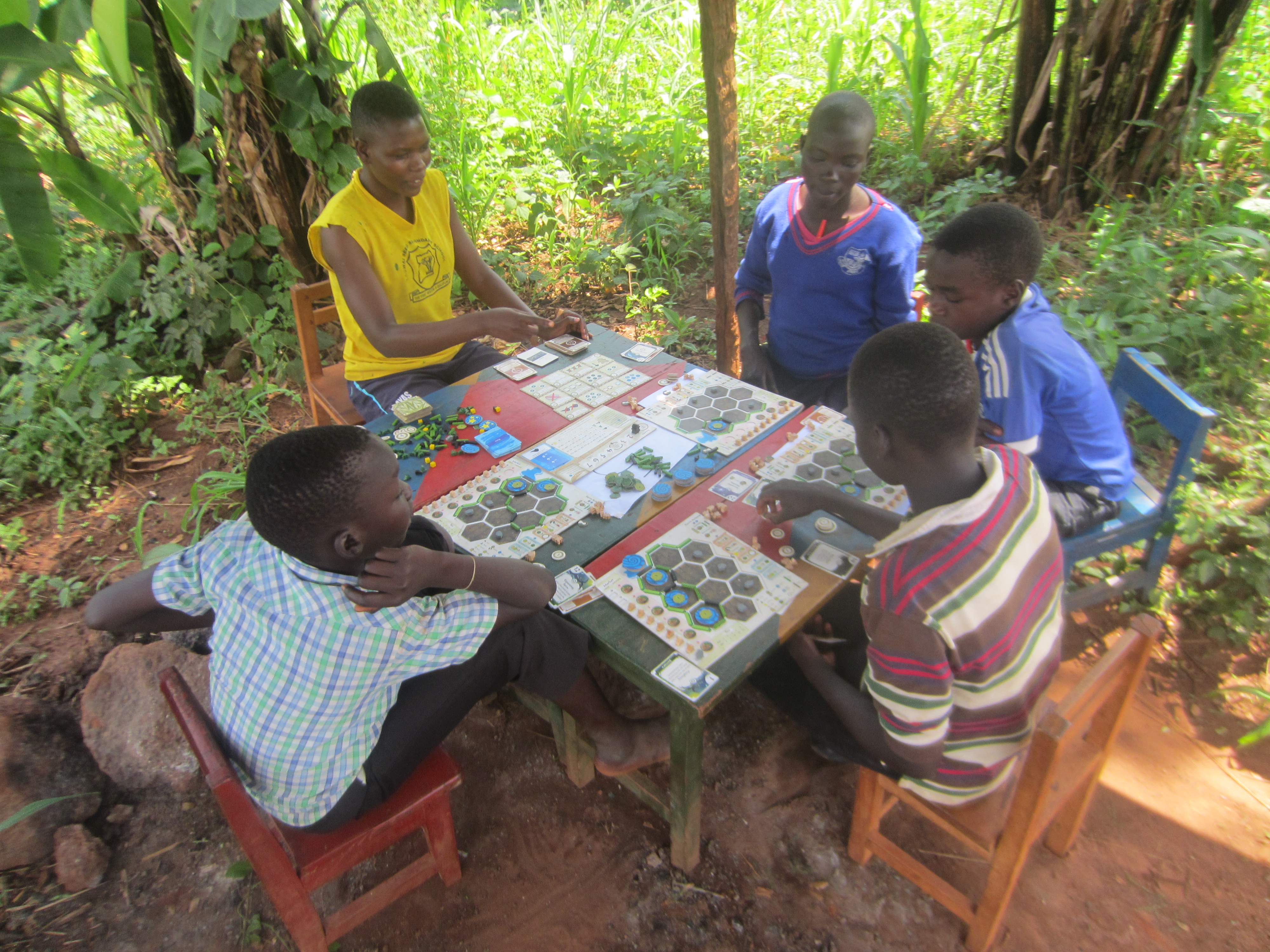
We train them on how to run a project, world issues, leadership skills, ethics, international issues, computing and communication and many other topics. Our objective is to equip them with practical skills and confidence to create change and the entrepreneurial ability to sustain their social projects. We help them build on their talents, work in teams, establish partnerships, link them with overseas experts, send them to Uganda’s arts and cultural events, enable them to cook and eat international foods and develop their vision through the use of selected films from around the world.
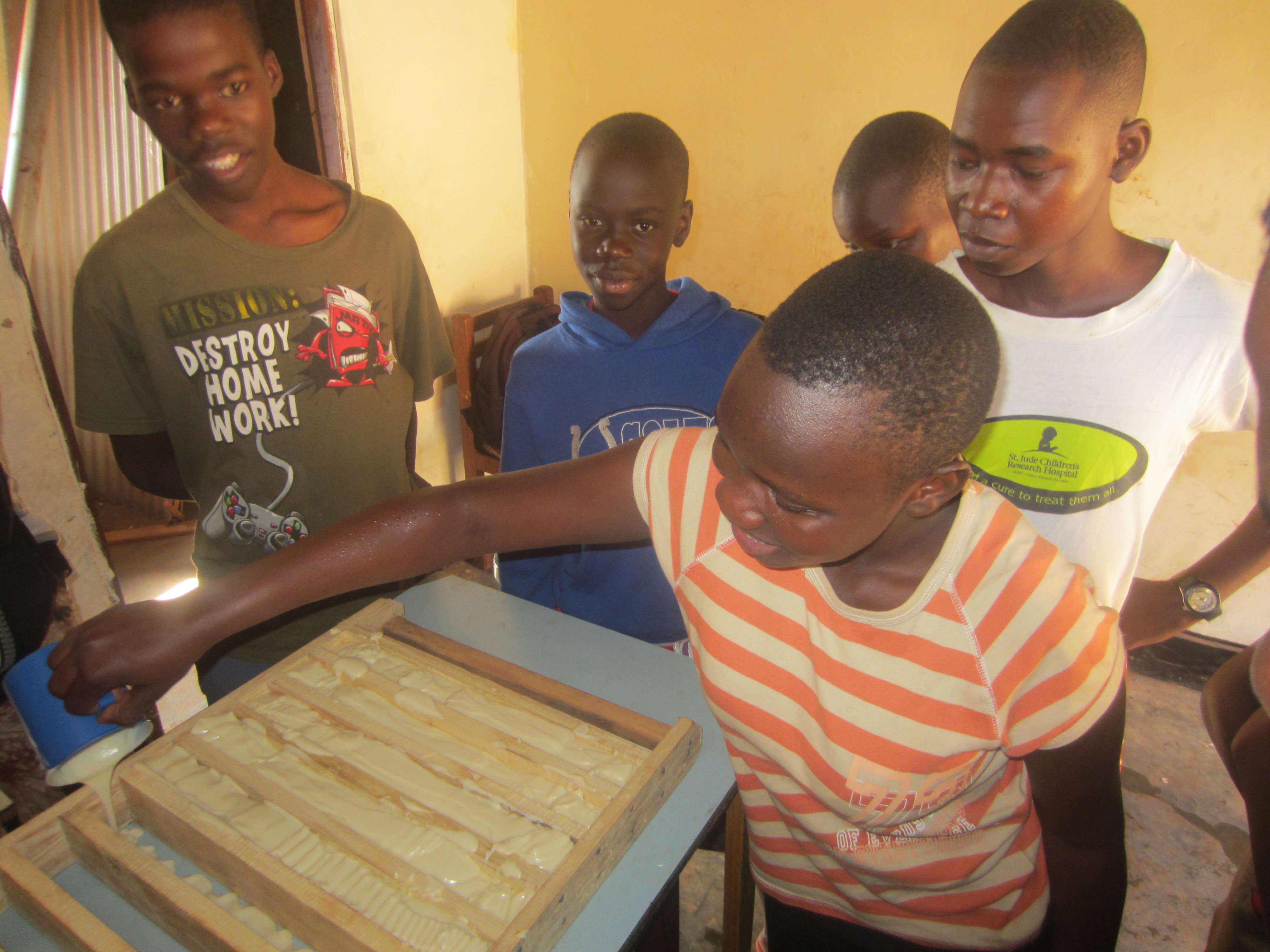
As part of their training we also ask them to run boardgaming events throughout the year, so they learn event management, teaching skills and how to play a variety of games. On Friday nights we also have been running the Kampala boardgames club, a chance for us to work with local children and youth and develop their games-playing ability.
We now have around 200 or more good quality boardgames in Uganda, spread around 6 rural games clubs and two city clubs, one in Gulu and another in Kampala. We try to play the greatest variety of boardgames, bringing in children in from local boarding schools.
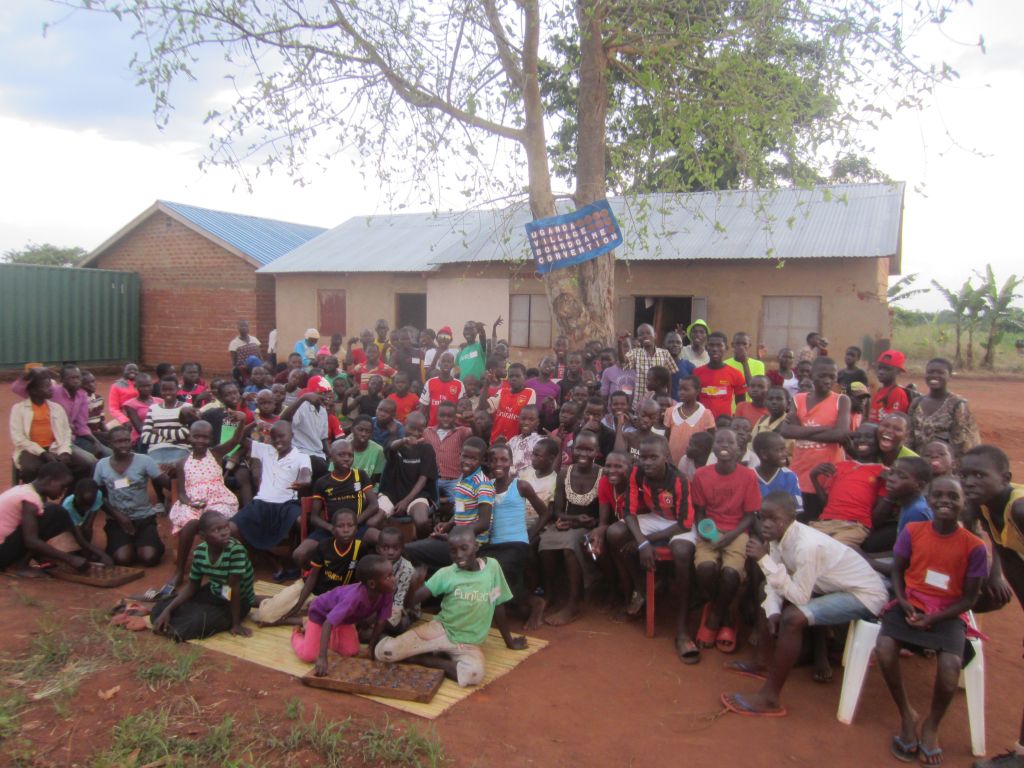
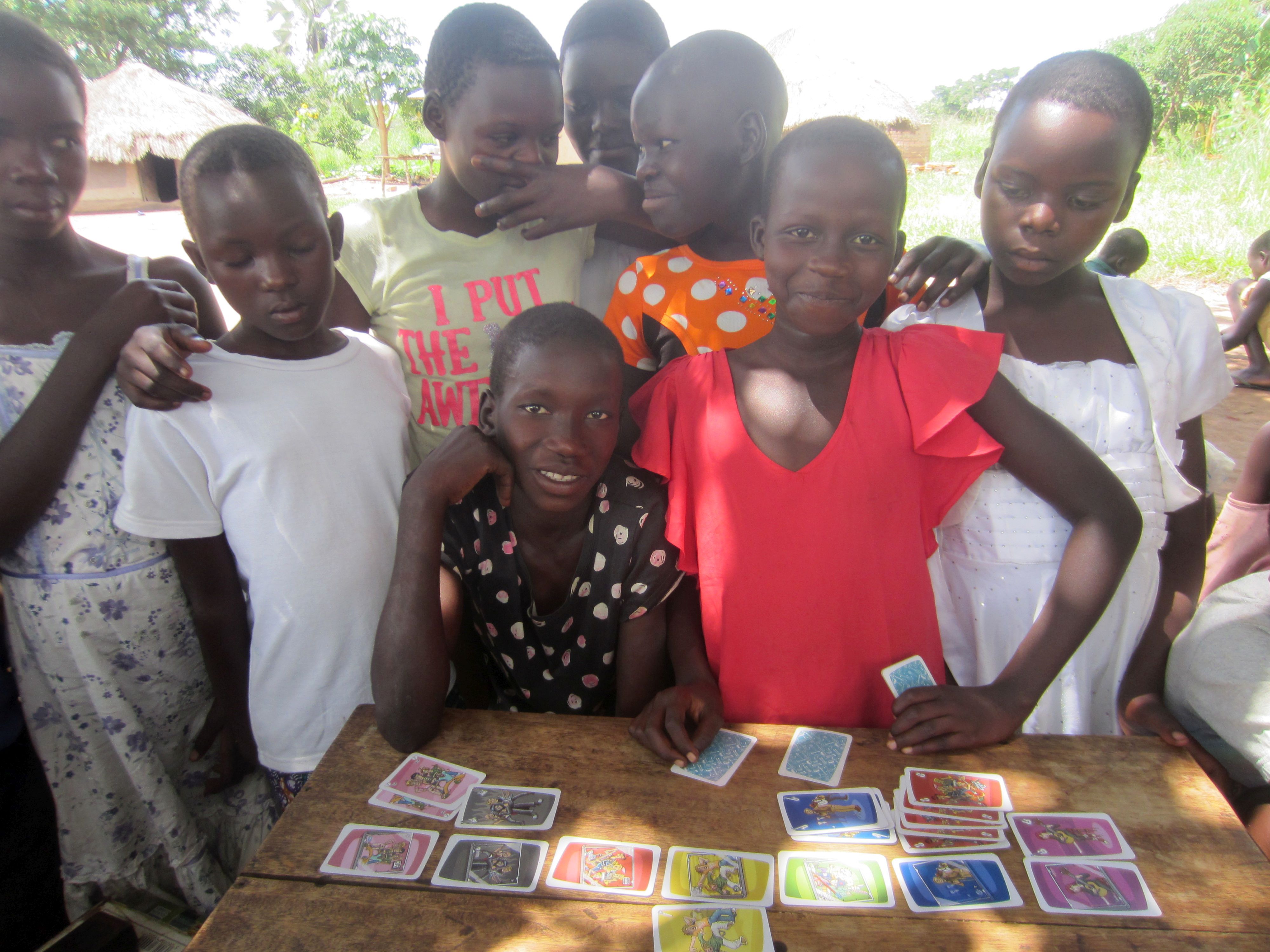
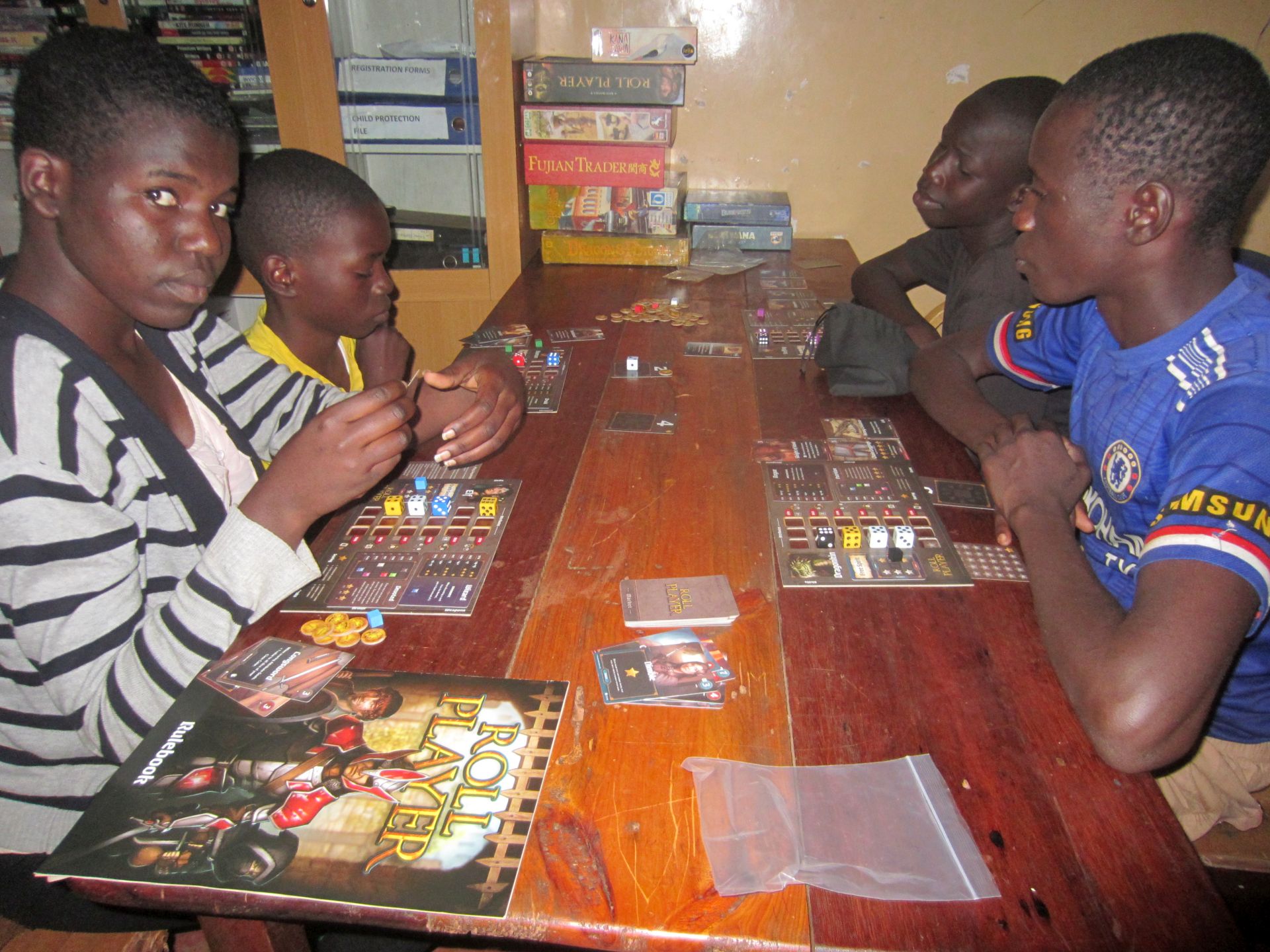
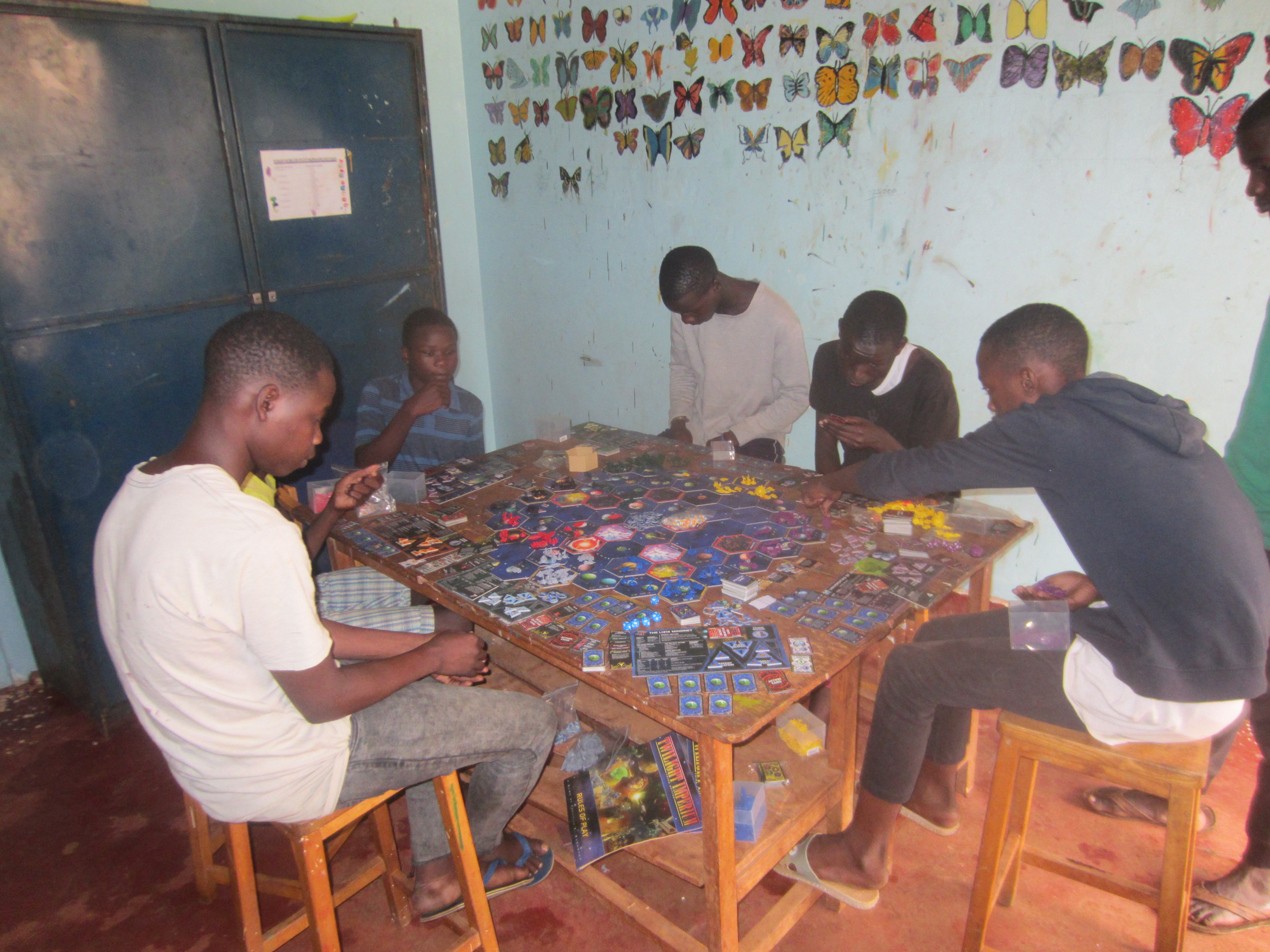
If you want to just support our project, then you can send donations here
If you’d like to support us with boardgame donations, then please send them to CYEN, 31 Prince of Wales Lane, Yardley Wood, Birmingham, B14 4LB or contact me (Ben) on socentafrica@gmail.com to arrange collection.
If you would like to sponsor one of our new trainees, but would like to discuss it first or ask questions, then please contact me on socentafrica@gmail.com.


